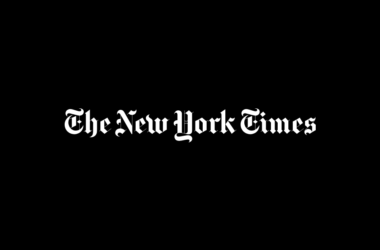Alainta Alcin has heard about the huge transfer of wealth from baby boomers to their millennial children that is underway — a move that has been called the largest shift of assets in history. But Ms. Alcin, an analyst for hospital systems, says it bears little resemblance to her own family’s experience.
“Unfortunately, my mom is one paycheck away from being unable to pay for anything,” said Ms. Alcin, a 34-year-old resident of West Palm Beach, Fla. “There’s nothing to transfer.”
Baby boomers have trillions of dollars in wealth that some economists predict will have a significant impact on their millennial-aged children when they inherit the cash, homes, stock portfolios and other assets their elders hold. But experts say that the narrative of millennials’ paying off debts and wielding greater spending power over the next two to three decades is complex — and leaves out families without enough assets to pass along.
As a first-generation American, Ms. Alcin saw her mother struggle to raise herself and five siblings after her father died. The elder Ms. Alcin had menial agricultural jobs — work that, at the age of 67, has become more difficult to do, even as she tries to make higher payments on her home’s adjustable-rate mortgage.
“She only has a limited amount of time where she can continue to work,” Ms. Alcin said. “It just seems as though economists miss a part of the hidden stories of people where there’s no wealth to begin with.”
In particular, young adults who are providing for aging parents while trying to establish their own retirement nest eggs worry that this inflection point will leave them further behind. Federal Reserve data shows that the average net worth among those aged 65 to 74 in 2022 was nearly $1.8 million. This figure is skewed by those at the upper end of the wealth spectrum, though. At the median, the average net worth of this age bracket was roughly $410,000, a figure that includes the values of homes and investments.
Estimates of how much wealth will be transferred over the coming decades vary widely, but even low calculations suggest that tens of trillions of dollars will change hands as baby boomers die. Some $84 trillion is expected to pass from older to younger generations between now and 2045, with $16 trillion of that taking place over the next decade. The rise in real estate values and the historically long bull market predating the pandemic, along with the shift from defined-benefit pensions to defined-contribution plans like 401(k)s over roughly the past generation, has made it possible, experts say.
Many monthly pension payments cover most or all of the cost of day-to-day living expenses, but with rare exceptions, payouts terminate after the worker or that person’s surviving spouse dies. Retirement accounts such as 401(k)s and individual retirement accounts, though, are treated differently.
“One of the interesting things about 401(k)s is that, unlike pensions, they can be handed down,” said Geoffrey Sanzenbacher, an associate professor of economics at Boston College. “There’s the opportunity for there to be this wealth transfer.”
And some boomers have both pensions and 401(k)s, giving them the flexibility to live on their pension payments and Social Security, and to save the defined-contribution balance for their heirs.
Even in families that have been able to accumulate some wealth, research suggests that millennials might be overconfident when it comes to expectations about how much they’ll inherit, though. A survey conducted two years ago by Alliant Credit Union found that just over half of millennials who anticipated inheriting money expected that they would get at least $350,000. However, 55 percent of boomers who say they plan to bequeath assets to their children or other younger family members say the amount will be less than $250,000.
“Parents have less money than their kids think,” said Sumeet Grover, Alliant’s chief digital and marketing officer.
A generational divide, and agreement
Boomers say their children live beyond their means. Millennials say their parents don’t have a clue how expensive it is to raise a family today. Beyond that, financial advisers who work with each generation say they see a widespread lack of transparency — although, again, they differ on what creates this divide.
Sophia Bera Daigle, founder of Gen Y Planning, a financial planning firm in Austin that works mostly with millennials, suspects that the appeal of holding onto the family purse strings for boomers is too strong to relinquish. “I think a part of it is control,” she said. “They really like having that control, being able to dole out those gifts if, and when, they want, or when they see fit.”
Boomers might also be unfamiliar with what young adults have to pay for homes, child care and college, even when those young adults are their own children, Ms. Daigle said.
In some cases, that disconnect extends to boomers’ own finances.
“In the ’90s with the tech boom, I think a lot of people made a lot of money and expected that same amount of money” would be available to them in the future, she said, but everything from recessions to health crises to divorce can crack those nest eggs.
Boomers counter that they are acting in their children’s best interests.
“In some families, it gets into the parents’ perception of the child’s work ethic and spending habits,” said Scott Oeth, a financial planner in Lake Edina, Minn. “They don’t want it to seem like their kids are depending on their inheritance.”
Where the generations do agree is that virtually nobody talks about this.
Alvin Carlos, a financial planner in Arlington, Va., said only about 10 percent of his millennial clients had talked to their parents about estate planning. “I think a majority of our clients think their parents are in a decent financial situation, but they don’t know that for sure.”
Ms. Daigle also said she saw generational differences in comfort with discussing financial matters. “I have yet to see a boomer be extremely transparent with their finances for their kids, unless that parent is living with them,” she said.
Mr. Grover, of Alliant, suggested that millennials were comparatively more open about their finances because, as a generation, they had been conditioned via social media to obtain and share information readily. “When you look at millennials, they’re extremely comfortable talking about money,” he said. “I think one of the reasons for that is the internet,” because young adults are used to sharing so much online about their personal lives.
The cost-of-care conundrum
One of the biggest risks that comes with not sharing financial and estate-planning information is the prospect that a parent could wind up needing lengthy nursing home care.
State-administered Medicaid programs are often families’ only options for that care, but eligibility requirements mean spending down savings and selling off or liquidating assets.
“That next generation needs to wait longer and may get less because, in the last few years of their parents’ lives, they had all those expenses of long-term care,” said Steve Parrish, co-director of the Center for Retirement Income at the American College of Financial Services.
People who want to leave an inheritance to their children and minimize taxes and delays on the transfer often establish trusts for their assets. But this supposes that these families are wealthy enough to afford to hire an estate lawyer. Middle-class millennials who might otherwise inherit a home and perhaps the contents of a bank account are the most vulnerable to seeing that value get depleted in order for their parent to qualify for Medicaid.
And some aren’t expecting anything at all.
Joyce Hahn, a first-generation American, said she worried about her father as he approaches age 80. Although he held a plethora of jobs since emigrating from South Korea in the 1970s, Ms. Hahn, 39, said she didn’t believe he was ever able to save for retirement.
Ms. Hahn, a Census Bureau employee and resident of Washington, D.C., already splits the cost of her father’s housing, in a rent-controlled senior living apartment in California, with her younger sister. She also pays ancillary expenses not covered by insurance, such as dental care. “We never really talk about those kinds of things,” she said. “We were raised in this Asian mentality of taking care of your elders,” she said.
She said she wished she had more visibility into her father’s finances. “I don’t imagine he’ll get to the point where he needs long-term care, but I don’t want to be surprised by it.”
Significant as the impact of long-term care costs can be on affected families, social policy experts warn that there is a much bigger pool of people who could be hurt by the way this wealth is transferred: Those millennials whose parents were unable to accrue wealth in the first place.
“It just exacerbates the wealth inequality that’s been growing worse over the last several decades,” Mr. Sanzenbacher said. “It becomes harder and harder to compete for resources.”
Marsha Barnes, founder of the Finance Bar, a financial planning firm in Charlotte, N.C., said many of her younger clients worried about outliving their 401(k) balances.
“Many of my clients are Black,” said Ms. Barnes, who is also Black. “They maybe started a little later in life with saving money in their 401(k),” she said, because many had to support their parents in retirement.
“I have a client who’s in her early 30s, and now she’s helping her mom because her dad passed away — she just feels that level of responsibility,” Ms. Barnes said.






